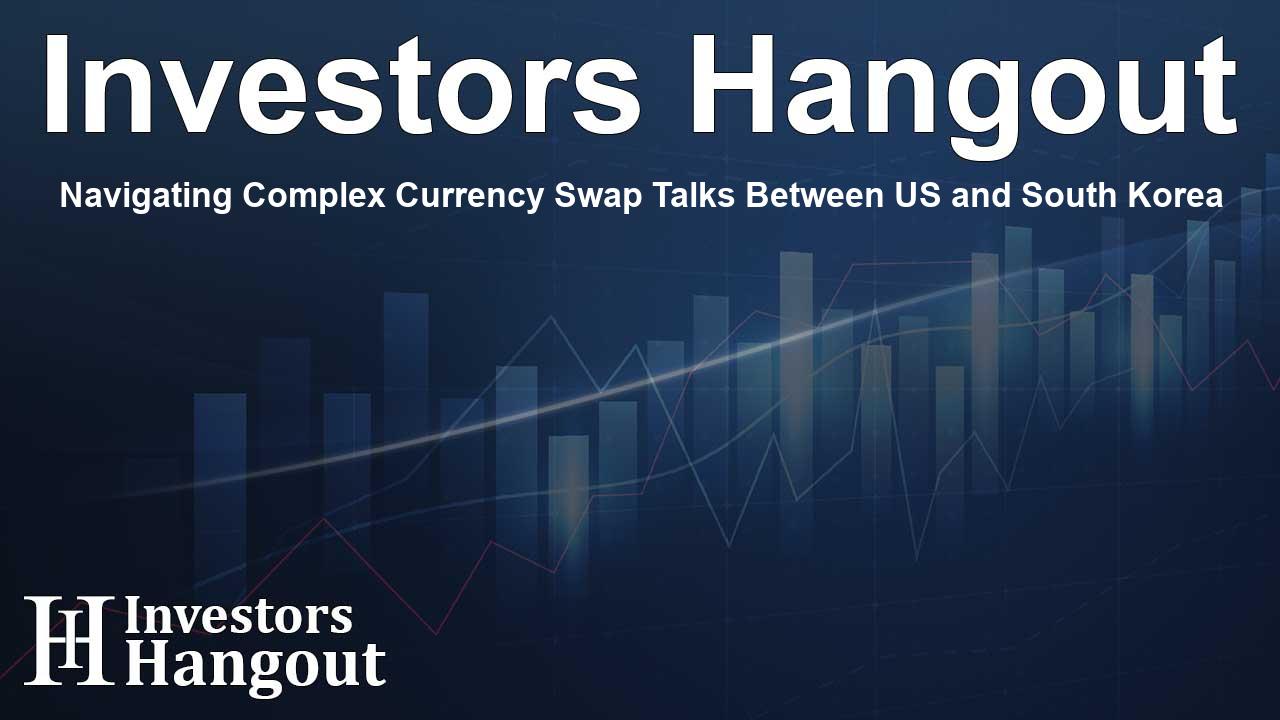Navigating Complex Currency Swap Talks Between US and South Korea

Currency Swap Deal ‘Won’t Be Easy’
South Korea's national security chief, Wi Sung-lac, has recently voiced apprehensions regarding the potential for a bilateral currency swap agreement with the United States. His concerns stem from the belief that securing such an agreement may prove to be exceedingly challenging.
In a local news interview, he emphasized that, while South Korea has proposed the currency swap, the historical performance of the U.S. suggests that achieving this goal might not be straightforward.
Earlier in the week, Wi addressed President Donald Trump’s assertion regarding South Korea's investment of $350 billion upfront. The national security chief articulated that the country simply cannot accommodate such a substantial financial commitment.
Investment Risks and Economic Stability
Wi stated, "The position we're discussing is not simply a negotiating tactic; it's based on our current economic reality, which is not sustainable at that level.”
Interestingly, negotiations between the two countries have appeared to stall. Reports indicate that this standstill is primarily due to the U.S.’s insistence on controlling funds and specifying the payment structure.
In a related context, South Korean President Lee Jae Myung has also commented on Trump’s proposal for a $350 billion investment. He cautioned that such demands could trigger a 1997-style financial crisis, should these negotiations continue without appropriate safeguards.
He articulated his concerns clearly: “Without a currency swap, if we were to withdraw $350 billion in the manner that the U.S. is demanding and invest this all in cash in the U.S., South Korea could face a situation similar to the 1997 financial crisis.”
Need for Commercial Rationality
President Lee insisted on “commercial reasonableness” for South Korea's investments, labeling it the “biggest obstacle” currently impeding the trade discussion. This reflects a broader sentiment within South Korean leadership emphasizing the need for balanced and fair economic exchanges.
Additionally, Lee met with U.S. Treasury Secretary Scott Bessent at a recent assembly to further the discussions. His Chief Policy Secretary Kim Yong-beom expressed optimism about progressing based on “commercial rationality” and collaborative interests for both nations.
Current Economic Climate and Currency Position
The economic indicators reveal a fluctuating backdrop, as the South Korean Won recently traded at 1,402.8 against the U.S. dollar. The currency displayed a slight uptick of 0.19%, yet continues to hover near its four-month low, reflecting the ongoing uncertainties tied to trade negotiations.
In this complex landscape, the dialogue between South Korea and the U.S. remains crucial. Both countries are navigating through a mix of economic strategy and political dialogue, with a clear need for mutual understanding and sustainable terms.
Frequently Asked Questions
What is the significance of the proposed currency swap agreement?
The currency swap agreement is significant as it aims to stabilize economic relations and provide a safety net for both countries amidst fluctuating markets.
Why is South Korea hesitant to agree to Trump's $350 billion investment?
South Korea is concerned about the potential economic repercussions and the sustainability of such a large financial commitment without appropriate safeguards.
What could trigger a financial crisis according to President Lee?
President Lee warns that failing to establish a currency swap while complying with U.S. financial demands could lead to a crisis similar to that experienced in 1997.
What are the current trading conditions of the South Korean Won?
The South Korean Won has been trading at 1,402.8 against the U.S. dollar, indicating some volatility and underlying economic uncertainties.
How are discussions progressing between the U.S. and South Korea?
While there is ongoing dialogue, the effectiveness of discussions remains uncertain as both parties continue to navigate sensitive economic terms.
About The Author
Contact Thomas Cooper privately here. Or send an email with ATTN: Thomas Cooper as the subject to contact@investorshangout.com.
About Investors Hangout
Investors Hangout is a leading online stock forum for financial discussion and learning, offering a wide range of free tools and resources. It draws in traders of all levels, who exchange market knowledge, investigate trading tactics, and keep an eye on industry developments in real time. Featuring financial articles, stock message boards, quotes, charts, company profiles, and live news updates. Through cooperative learning and a wealth of informational resources, it helps users from novices creating their first portfolios to experts honing their techniques. Join Investors Hangout today: https://investorshangout.com/
The content of this article is based on factual, publicly available information and does not represent legal, financial, or investment advice. Investors Hangout does not offer financial advice, and the author is not a licensed financial advisor. Consult a qualified advisor before making any financial or investment decisions based on this article. This article should not be considered advice to purchase, sell, or hold any securities or other investments. If any of the material provided here is inaccurate, please contact us for corrections.
